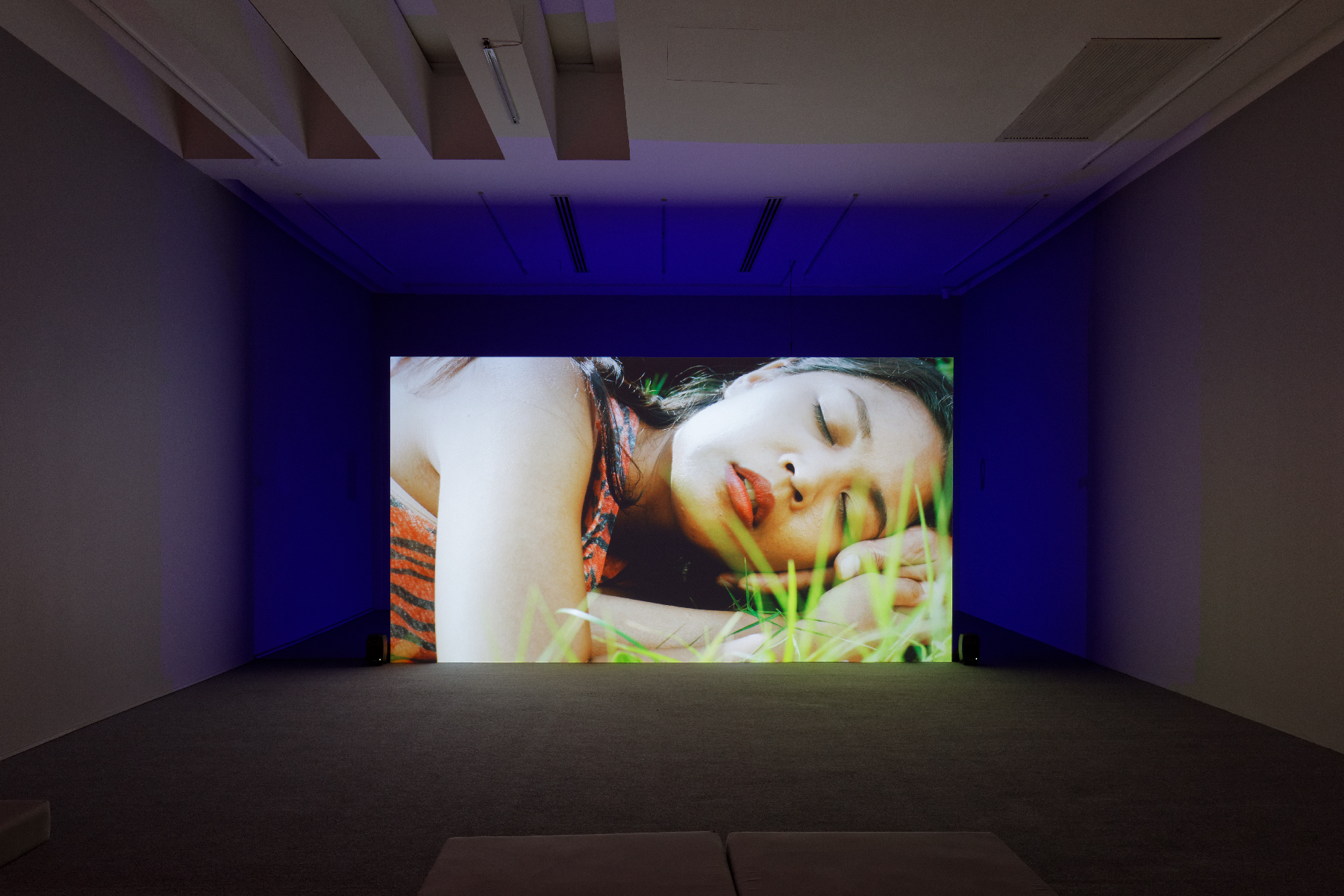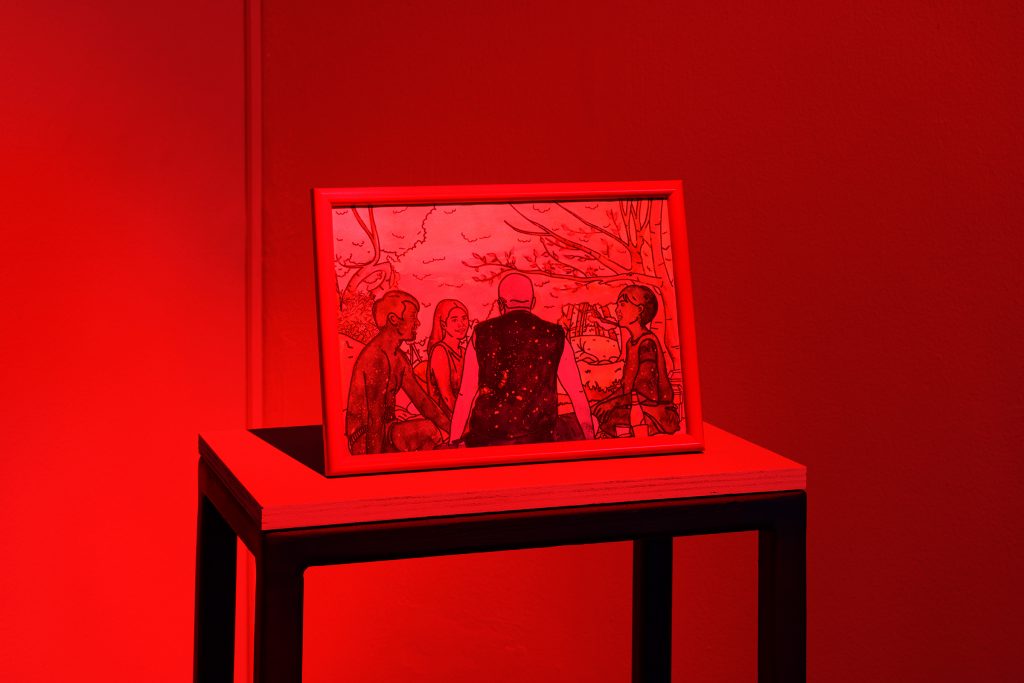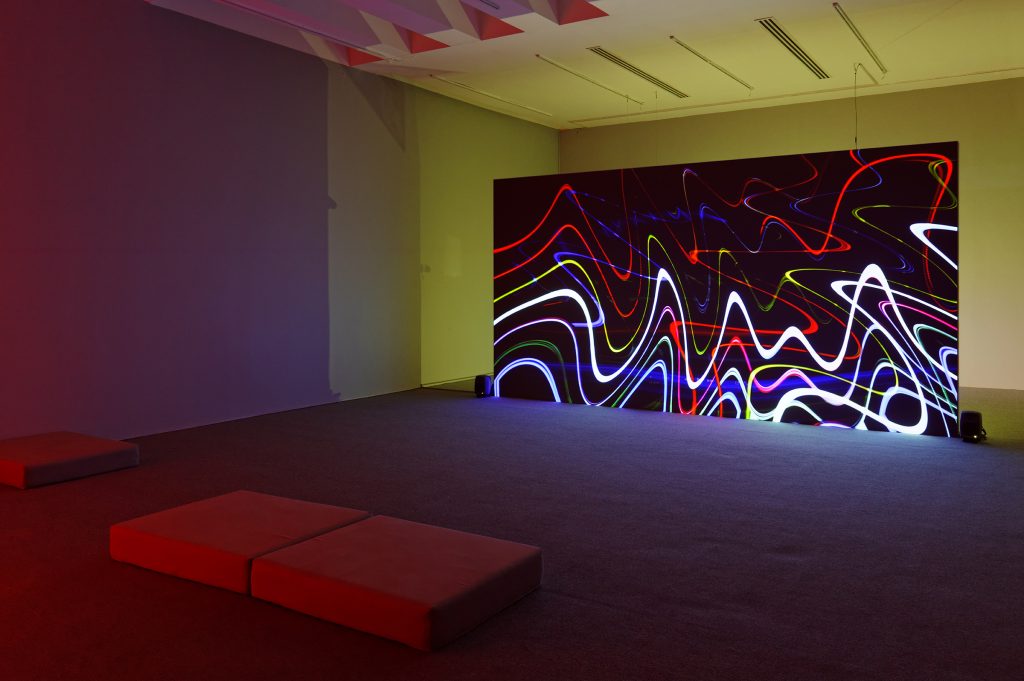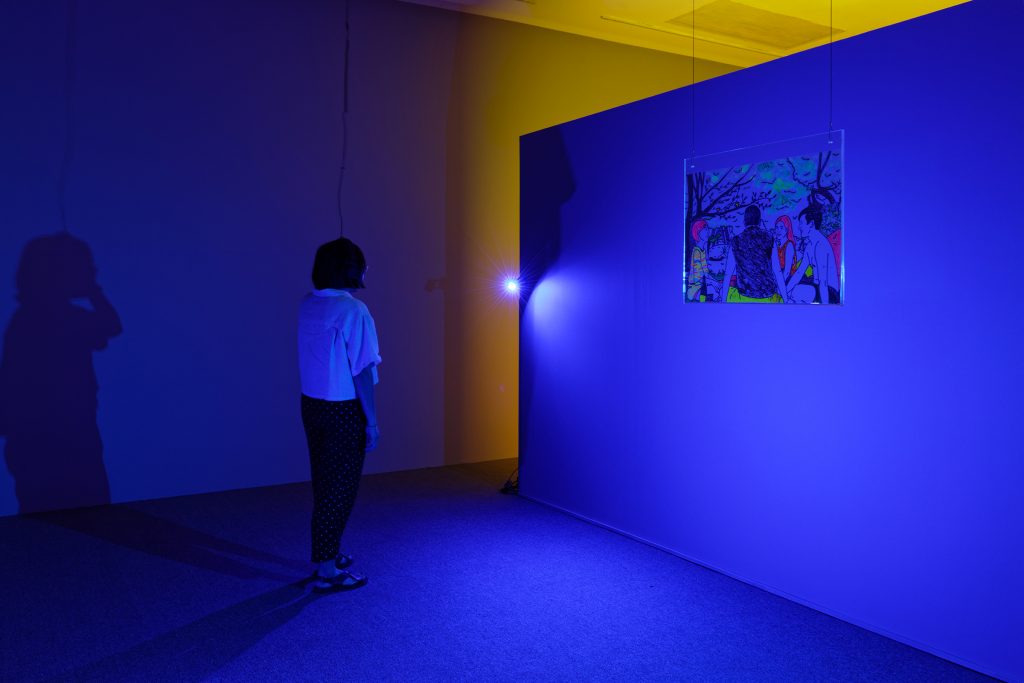THE LATEST EXHIBITION BY TULAPOP SAENJAROEN, QUESTIONS US AN INTERESTING ISSUE OF MODERN-DAY HUMAN’S POSSESSION OF TIME
TEXT: KANDECH DEELEE
PHOTO COURTESY OF ATELIER 247 / 100 TONSON GALLERY
(For Thai, press here)
The Industrial Revolution radically changed the way humans perceive time. From the agricultural way of life where personal time and working hours were seamless and humans were the ones in charge of their own lives and the products they created, the industrial society has turned us into a mechanism in the system where production is efficiently controlled.
The line between work and life is clearly defined and separated and humans live around a new clock. People then began to imagine a world where all the hard tasks get assigned to robots but once the progression of technology is capable enough, new questions are being asked. ‘Can we make more or go faster?’ And we find our life transitions into yet another change. The line between life and work gets blurred.
With technology, humans can now work from pretty much anywhere and at anytime. The cruel capitalist society is milking everyone dry as people compete to be at the top of the pyramid.
People on Sunday by Tulapop Saenjaroen paints an interesting picture of modern-day human’s possession of time. The large screen at the center of the exhibition room shows a video that tells stories about the lives, views and work experiences of three individuals. It begins with an actress hired to act in a scene where the character is spending her free time. With such scenario, Saenjaroen asks an interesting question. “If an actress is hired to act out a scene where she spends her free time, is it considered a job?” Although the actress is given the freedom to choose the activity she wishes to do during the scene, she’s well aware that this is her job. It’s a metaphorical depiction of the obscurity of time in one’s life and work.
The next video is of a photographer who was afraid of being photographed. It depicts an interesting paradoxical nature of the person’s personality and the work he does. Contrary to what society expects, instead of feeling content and passionate about their job, the video reveals the photographer’s feeling of nervousness, insecurity, and a loss of identity, all from the work he does for a living. Everything reflects an image of humans in the modern world whose lives are being eaten away by responsibilities. In addition to the content of the video shot by the photographer himself, what’s interesting about this last part is the distorted sound of the speaker over the moving images. The indecipherable noises can be understood via the provided subtitle as the distortion of sounds reflects the individual’s loss of control over her own self.
The last part of the video is of a freelancer who began complaining about her feelings towards the seemingly endless working hours and the loss of control over her own time as the passion she once had for her job now wears thin. Her voice is put over a short montage with images representing the modern world cut in fast consecutive shots, depicting the uncontrolled dystopia. The artist ends with a sarcastic plot twist, for the very same freelancer is featured in an ASMR video-editing tutorial. The paradox lies in how an emotionally distressed person is now teaching other people about how to make a relaxing video. Gradually, viewers witness and realize that these individuals have fallen apart as work consumes their being, time and life of not just these three individuals but for us all.
Perhaps it’s time we ask ourselves that with the control and ownership of time we once had and its meaning we once knew that is now gone, then who is the true owner of time?
People on Sunday, an art exhibition by Tulapop Saenjaroen, available for viewing at 100 Tonson Gallery from 19th December 2019 to 26th April 2020.





